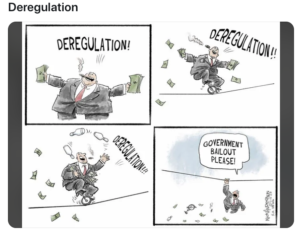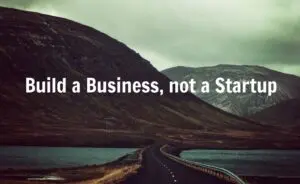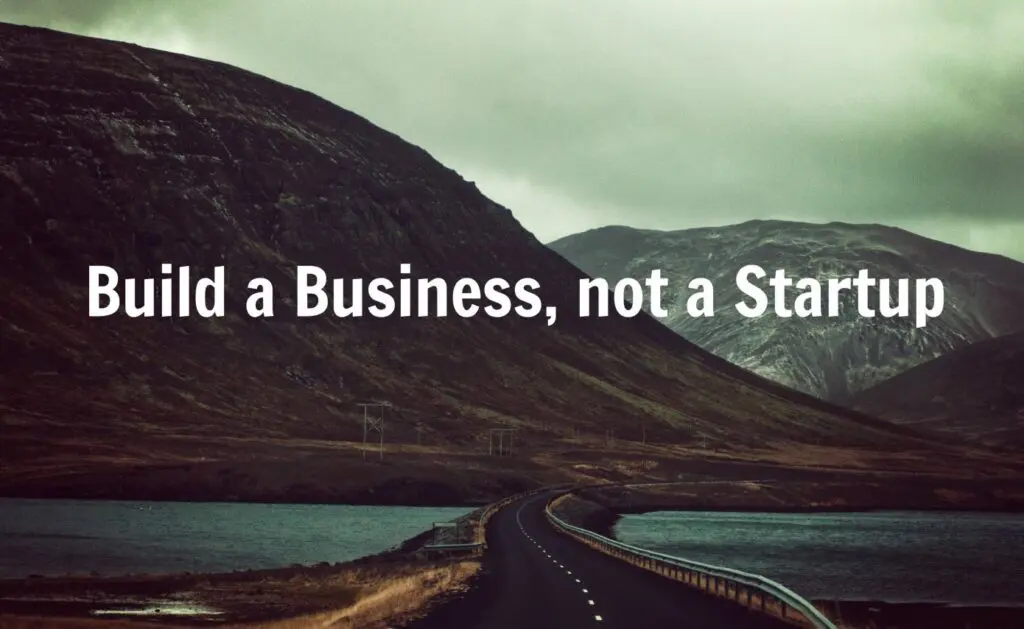Today, I attended a wonderful event at LeMoyne University’s Coyne Center. It was the Syracuse Surge Business Accelerator “graduation” celebration. This program is targeted to bring access to business incubator, advisory and professional services, technical advice and resources, and introductions to investor networks and advice about how to engage with them, to under-serviced communities, to create a broader base socio-economically for tech innovation and economic development. It was great to see so many supporters of local entrepreneurship, both the ones behind this program and those in attendance. Hats off to you all! Great program; great event!
https://www.lemoyne.edu/syracuse-community/visual-performing-arts/
Leigh-Ann Buchanan, Esq., President & CEO of Miami Dade Innovation Authority, was the keynote speaker. She has an incredible background in entrepreneurship, and has helped launch Miami into the second most active, most invested tech hub in the United States. This remarkable woman has worked for three or four separate government/private partnerships and not-for-profits to bring access to modern technology to under-serviced poorer neighborhoods in Metro Miami, where fundamental tools like Internet access are not always available or affordable in a city that is two-thirds comprised of people of color.

Ms. Buchanan shared an important insight into how she was able to help bring tools for the New Economy to those who have struggled for access – she helped municipal government understand that hiring new businesses owned by people of color, to bring technology to people of color, created a virtuous cycle. It betters life for everyday folks, and it makes useful productive investment of government funding to help grow local tech businesses. Businesses that create good paying jobs with a future. The financial benefits ripple through the local community.
When I listened to her approach, I recalled a conversation I had with New York State Comptroller Tom DiNapoli, probably 10 years ago, about a new fund that New York State had created for tech investment. Unfortunately, these funds were an allocation from the NYS Retirement Fund, and no real tech start-ups would ever meet the rigorous financial requirements to receive investment of NYS retirement dollars. A great idea that was well-intentioned, but could never work in practice.
But Ms. Buchanan’s insight is worth noting for how Miami used municipal budget and grant funding to help bring more equitable economic growth, by supporting high quality jobs at new locally owned businesses. Spending money already allocated for government services was focused on Minority, Women and Veteran Owned Business Enterprises. This is a tremendous idea! Use government purchasing power and spend it locally to support tech innovation in your own community. This is a way to help get Entrepreneurship “Back on Track”.
But wait, what do you mean “Back on Track”? Isn’t entrepreneurship at an all-time high right now in the United States?
Yes, it’s true that ever since COVID in 2020, people starting new businesses has exploded. Many people used the restrictions of the epidemic to hatch new ideas, and look for new ways to supplement their income. AirBNB exploded, for instance. People sell products easier than ever on Amazon. Business incubator programs sponsored by the Small Business Development Center, an agency funded by the SBA, operate in every county pretty much in the entire United States, easily available at your local community college.
So, what’s wrong?
We would have more local social impact by investing more in products and services from local businesses, and stop focusing so much on new business being conditioned to chasing VC dollars. VC investment takes up all the oxygen in the room when talking about entrepreneurship, when it is only a tiny, tiny piece of the overall picture of new business formation and economic growth in this country.
Personally, I think the VC function is broken today. I also feel like our stock markets are broken, and have failed their essential purpose (allocation of capital to the most promising investment opportunities), starting at least twenty years ago, and have never truly recovered. The stock markets, for at least 20 years, have been nothing more than a casino. Fundamentals were given up as a guide to investment a generation ago. It’s considered so “quaint” today for a company to be actually profitable, or to pay investors dividends, like blue chip stocks did for generations.
Local investment in start-ups and tech businesses creates greater opportunity within your local community to expand the base for innovation. It also creates better, high-paying jobs. Innovation is not just patents. It’s not just VC investments. Innovation is delivering a service or product that is better than what’s currently available, and delivers real value to the customer. Innovation can happen in every industry. It can appear to be modest, and still be meaningful – and profitable.
Here in Syracuse, we are receiving substantial tech investment after years of hard work by CenterState CEO and our local and state government, in particular Senator Chuck Schumer, and President Joe Biden, a Syracuse Law grad, who brought the CHIPS Act and its multi-billion dollar investment to the Route 90 corridor, anchored by Micron, north of Syracuse. One of the major focuses of our local economic and government leaders – to their immense credit – is the focus on spreading the opportunity throughout the entire community. They are also focused on hidden barriers to economic growth – like affordable housing, sufficient public services, highways, sewers, more teachers, doctors, and so on.
Attaining real economic development for the many, and not just the few, requires everyone to be involved, and Syracuse is doing a great job of that. Just like Ms. Buchanan’s local tech entrepreneurship programs in Miami have focused on being inclusive, and bringing real benefits to the least advantaged in the community, Syracuse is looking to do the same.
Returning to the Tech Investment environment today: My friend Trace Cohen, an Angel investor and very knowledgeable guy about emerging tech trends and investment (https://www.linkedin.com/in/tracecohen/), has a newsletter with terrific “on the ground” insights into the tech investment community. Trace notes that in the last few years, tech investing has struggled with exits.
In particular, he notes that recent M&A activity, usually the source of most tech start-up exits, has dried up in light of increasing antitrust scrutiny of the big tech companies. We just saw the first successful antitrust action in 30 years decided a few days ago against Google. I agree with him, 110%. Acquisition has always been the best path to an exit for start-ups, rather than the elusive IPO. And now VC’s face an environment that will be increasingly hostile to acquisition of promising start-ups for antitrust concerns. Many prominent VC’s are quietly shutting down funds and forcing companies they have invested in to go out of business.

So, how much has tech investing changed in the last 30 years that I’ve been following it? Or has it changed at all? Looking way back into tech investing history, we saw Pets.com spend $1.2 million on an ad in the 2000 Super Bowl, at the height of the Dom Com Era, in the heady aftermath of the IPO of Netscape in August 1995. Pets.com earned $619,000 in revenue in 2020, and spent $11.8 million on advertising. They were bankrupt by that Thanksgiving.

Netscape really launched the modern tech investment era. Netscape stock – which was seen as the gateway to the Internet, the ultimate monopoly – doubled its price just before going public at $28/share, and was trading at $174/share only 4 months later. With that event, tech investing forever changed, and not necessarily for the better.
While I can feel you roll your eyes at my observations from ancient history, hear me out.
As recently as 25 years ago, give or take, we had a much, much different economy than we have today. The stock market was different. Banking was different. If you go back 10 years before that, the differences were even more profound. Too many people today accept the status quo as inevitable and unchangeable, but we could have – and have had – a much different, more equitable economy than we have today. What could I mean by that?
Lets look back at those pre-Netscape days. The titans of the modern computer and telecom industry did not start their businesses by looking for Venture Capital. It barely existed, compared to today.

No, companies like Hewlett-Packard, arguably the creator of Silicon Valley, started in the 1930s making electronics for use by Disney in their animated films. Then they won contracts from the government during WWII making anti-radar devices and other electronics for use by the military. It wasn’t until the company was 20 years old that it first made semiconductors, giving birth to the modern computer industry. Bill Gates wasn’t looking for VC money. Steve Jobs, Andy Grove, Larry Ellison – these guys built things first, and the investors FOUND THEM. Build a business, not a “start-up”. They didn’t take PowerPoint slides down to JP Morgan to ask for money. These titans of the tech era built the product, satisfied a customer need, and the investors (and the money) found them.
Back in early 1990s, we had greater banking regulations. Commercial banks were not allowed to trade for their own account; that was left to investment banks. Banks couldn’t sell insurance products. There were firewalls between savings & loan, commercial banking, investment banking and insurance. Now, they are all intermingled, and regulation has been gutted as conflicts of interest abound, all to the banks’ profit, and at your personal expense.

Banking used to be in a state of equilibrium for several decades: passbook savings generally paid around 3% interest on your savings, secured loans (car or mortgage) cost you around 6% as a consumer, and personal or business loans were 9%. Imagine that – people could earn money on their savings, with government insurance and no risk!
But 20 years ago, deregulated banks knew that there was more money to be made by making people invest in stocks.
https://www.forbes.com/advisor/banking/savings/history-of-savings-account-interest-rates/
Interest rates on passbook savings fell to 1-2% in the early 200os, and stayed there or lower for 20 years. This forced people to invest in the stock market to get any kind of return at all on their savings. This was a policy decision in response to corporate / banking interests, secured by lobbyists from our legislators. This policy decision artificially propped up the stock market, and corporate performance became more and more short-term stock price oriented, at the expense of long-term corporate vision. Thus began the looting of corporate America by management.
It also had the by-product of forcing most Americans with a 401K to have to invest in stocks or mutual funds. Americans began to view their wealth as market-driven, rather than asset-driven. There are pluses and minuses to this change. You have more room to tolerate risk when you are younger and you have decades of investment growth ahead of you. Older investors need safe harbors, and most have been taken away, in favor of always-risky investments – like bond funds – offered instead of guaranteed return investments like bonds themselves. A bond fund is just a bet on which direction interest rates are headed. A bond delivers a guaranteed rate of return. This sounds obvious, but most “safe” investments of the past have been made unattractive by the banks and the markets.
Venture Capital benefitted from people looking for stock investment opportunities. Those with disposable wealth in a generally-rising market are more risk tolerant, since greater risk offers greater reward. Venture Capital gradually built back from the Dot Com collapse of the early 2000’s. But the new problem is that with the turn of the Millenium, there was a collapse of both regulations of financial institutions, and with it, a loss of integrity in business itself.

OK, surely that sounds like hyperbole. “The market has always been a bet, a gamble”, you say. Yes, I hear you. But the casino used to be fact (and finance) based, and not rigged by insider trading, computer trading and market manipulation. All of those factors have polluted the proper function of the market.
But before you call me idealistic, naive or a Marxist, understand that I studied Keynesian economics for a year at Cornell as an undergrad. My degree was in Government. I have worked in the legal departments of publicly traded Fortune 500 companies. I have worked with start-ups, been an investor in start-ups, and an executive in three different ones. I have helped more than 400 people start new businesses. I have a post-graduate Certificate in Securities Law from Cornell Law School’s Executive Education program. I have successfully litigated securities fraud cases in the 2nd Circuit Court of Appeals and New York’s Appellate Division, as well as the State and Federal trial courts. I am not uninformed.
The market went wrong when the 1990s rush to deregulation led to “off the books” transactions – and entire lines of business – that were unknown to investors. ENRON probably sounds familiar to some of you. WorldComm, led by Bernie Ebbers, was another. Those stocks were accounting-based securities fraud. They marked the beginning of an era that has continued to undermine the trustworthiness of US Stock Markets ever since, largely un-remedied by any real banking or securities reform.
No bankers ever went to jail for the 2007-08 banking collapse, although currency manipulation and securities fraud by financiers was the source of the melt-down of the global economy and loss of trillions of dollars. The extent of these never-ending series of frauds on the market – from Jordan Belfort to Bernie Madoff, from Ken Lay and Bernie Ebbers to Sam Bankman-Fried and all the Crypto Bros, to Elizabeth Holmes – is most illustrative of how persistent and pervasive the problem is. Our markets do not properly function, period, because of lack of proper regulations, and lack of consequences for those who have broken, and continue to break the law.
All of this corruption is reflected in our Congress. Lavish spending by lobbyists has turned our representatives into serial inside stock traders. I’m old enough to remember when they sent Martha Stewart to jail for a tip she received about a stock over dinner that she acted on. I wondered a couple years ago when Congress had exempted themselves from Insider Trading, and wondered how I had never heard about it. Turns out they never did! What 100 or more of them do every single year is illegal. Congress’ use of campaign funds is another slush fund that they use as personal bank accounts, frequently in violation of election law. All of this goes unchallenged, unfortunately, because “all of them do it” (except for a few …).
https://www.bu.edu/rbfl/2023/05/17/insider-trading-by-members-of-congress/
Corruption has spread into disregard for facts. I’m not going to get even more political and start talking about the origins of “alternative facts”, but I think we can all agree that without a shared agreement about reality, we have no hope of improving anything, or fixing anything, if we can’t even identify what’s wrong.
So, what can entrepreneurs DO, when the system has gotten so messed up?
MY SOLUTION:
- Focus Local – Improve Your Community First. Solving local problems gives you easy access to customers and direct feedback
- Focus on Customers – don’t chase VC Money. 99.5% of companies never get VC funding, and those that do are rushed to grow too fast, often failing as a direct result, when they could have been otherwise successful businesses
- Focus on Building a Business, not a “Start-Up”. Ninety percent of start-ups fail, versus around 50% of small businesses. I think it’s because founders of “start ups” (i.e., those convinced that they are a “tech business”, instead of maybe a more humble service business) spend too much time trying to get investors to write them big checks, and don’t really focus on building an actual business at all.
Shark Tank has been wonderful for how it has made the entire country aware of Start-Ups and entrepreneurship. It’s not how real investing works, obviously, because you never get a six minute segment where someone decides whether or not to fund your business. That’s just not how it works. It takes much, much longer to get to the point where you can have a real conversation with a potential investor.
But one thing I will point out about the very successful investors on the show: You don’t see them investing in things that cannot be sold in a store today, or bought online as a service today. They don’t invest in AI or Blockchain or Crypto or “New Platforms” or Virtual Reality on the show. They invest in what will provide a return on investment as soon as possible. The fastest path to revenue is an important thing that too many in VC circles seem to have forgotten about. Entrepreneurs should not. That is the lifeblood of any business – fastest path to revenue, and keeping track of your cash flow. That’s key to your survival in business.

In real life, investors who you try to pitch are distracted and not nearly as well informed in your business as you think they are. Investing for many Angels is a social activity as much as a financial investment. You need to understand this, to appreciate how much time it is going to take you to make an impact on this audience. Investors have great self-importance. They have already been successful. They think they all have “The Secret Sauce” to success. Every opportunity they see reminds them of their own success, and so they become a “hammer” who only sees “nails”.
My advice to entrepreneurs is shared by Leigh-Ann Buchanan. When we spoke after Syracuse Surge today, she told me that she used to be a bankruptcy litigator early in her career. She and I were discussing the importance of building a real business, and not just chasing investors and always working on your PowerPoint deck. She said, “I just don’t get how VC’s put billion dollar valuations on some of these companies. Most of them are actually, factually bankrupt if you forced them to liquidate tomorrow.” Tech investing today has become too much like a shared delusion, driven by a cult of personality, a glib sales pitch, a fantasy version of tomorrow.
We have to get back to business fundamentals, like profit and loss, margins, actual number of paying customers, and rates of growth. One under-appreciated problem of chasing VC money, is that VC’s don’t want to wait to know whether their bet is going to pay off. So they use their investment to saddle Founders with debt, too much staff too soon, too much professional service expense, too much in consulting fees; growth at any price. They push the chips “all in” on far too many promising businesses too soon.
https://www.baselinemag.com/news/venture-capital-decline-forces-startup-shutdowns/
Many perfectly good businesses that could grow organically into multi-million dollar companies tend to be forced out of business by VC’s. If they aren’t growing fast enough, these companies are “put out of their misery”. This applies to certain incubator company programs I’ve seen, too. “You have three years to generate this return on our investment, pay off this balloon payment on your note, or we can shut you down.” Your business is OVER because we say so.
That doesn’t sound like good business to me. And as a Founder, didn’t you get into this for some level of freedom? Didn’t you do this to be your own boss, control your own destiny?
We have to get back to better investment vehicles, like traditional Reg D Private Placements, where everyone knew what the security on offer was, what it’s current value was said to be.
The combination of SAFEs (a truly bad investment for early money, objectively speaking) and VC money can create “zombie” companies that didn’t grow fast enough, and can’t raise any more money, because their early investors got no equity (and therefore won’t invest again ..), and the Founders never got to that Priced Round from the “Big VC”. They never grew fast enough to draw that next round of investment. So they flounder, and then die under all that debt.
That is not how to build businesses. Let’s get back to basics.
That’s how we all benefit – by building tech businesses as businesses, not as lottery tickets for people who want to gamble on a Founder’s future. Own your own future.



